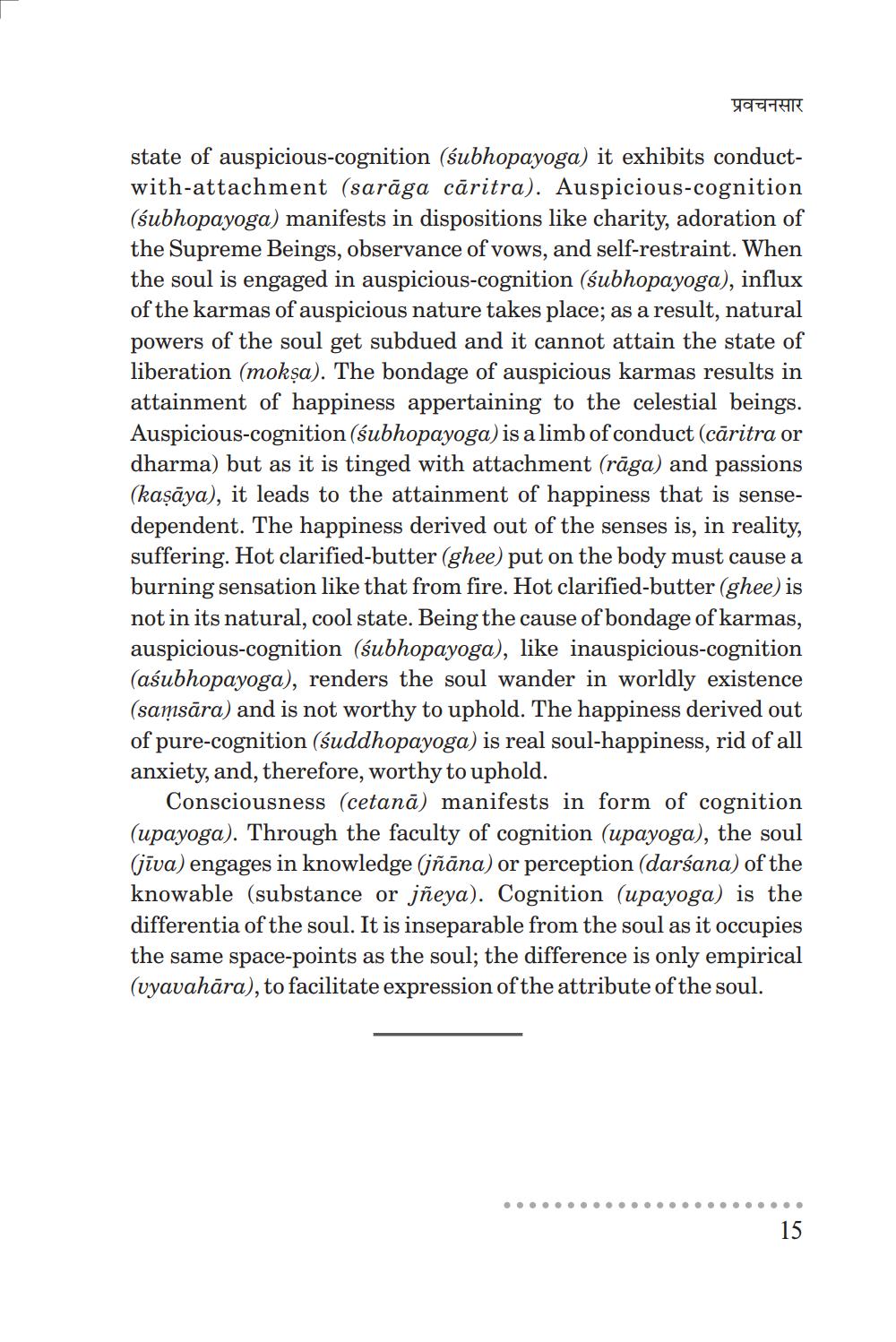________________
प्रवचनसार
state of auspicious-cognition (śubhopayoga) it exhibits conductwith-attachment (sarāga căritra). Auspicious-cognition (śubhopayoga) manifests in dispositions like charity, adoration of the Supreme Beings, observance of vows, and self-restraint. When the soul is engaged in auspicious-cognition (śubhopayoga), influx of the karmas of auspicious nature takes place; as a result, natural powers of the soul get subdued and it cannot attain the state of liberation (mokşa). The bondage of auspicious karmas results in attainment of happiness appertaining to the celestial beings. Auspicious-cognition (śubhopayoga) is a limb of conduct (cāritra or dharma) but as it is tinged with attachment (rāga) and passions (kaşāya), it leads to the attainment of happiness that is sensedependent. The happiness derived out of the senses is, in reality, suffering. Hot clarified-butter (ghee) put on the body must cause a burning sensation like that from fire. Hot clarified-butter (ghee) is not in its natural, cool state. Being the cause of bondage of karmas, auspicious-cognition (śubhopayoga), like inauspicious-cognition (aśubhopayoga), renders the soul wander in worldly existence (samsāra) and is not worthy to uphold. The happiness derived out of pure-cognition (suddhopayoga) is real soul-happiness, rid of all anxiety, and, therefore, worthy to uphold.
Consciousness (cetanā) manifests in form of cognition (upayoga). Through the faculty of cognition (upayoga), the soul (jīva) engages in knowledge (jñāna) or perception (darśana) of the knowable (substance or jñeya). Cognition (upayoga) is the differentia of the soul. It is inseparable from the soul as it occupies the same space-points as the soul; the difference is only empirical (vyavahāra), to facilitate expression of the attribute of the soul.
........................




